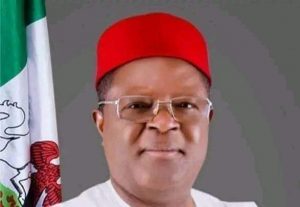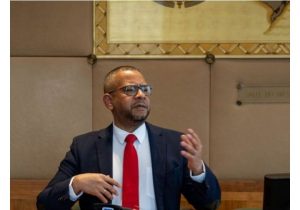Withdrawal of Mali, Burkina Faso, and Niger from ECOWAS Sends Shockwaves Across West Africa

The Economic Community of West African States (ECOWAS) experienced an unprecedented event yesterday as three member countries—Mali, Burkina Faso, and Niger—announced their withdrawal from the regional bloc. This marks the first time in the organization’s history that multiple nations have simultaneously exited.
The joint statement issued by the three countries cited concerns that ECOWAS no longer prioritizes the interests of its people and has been influenced by external powers. They particularly criticized the bloc for imposing sanctions on them following military coups in their respective nations. The leaders expressed disappointment in ECOWAS’ failure to support their fight against terrorism and insecurity.
The withdrawal of these countries has raised significant concerns among diplomats, stakeholders, and Civil Society Organizations (CSOs) about the future of ECOWAS and the impact on regional stability. Nigeria, as a key member of the bloc, is expected to be particularly affected by this development.
The move comes amidst growing tensions between the military-led governments of Mali, Burkina Faso, and Niger and ECOWAS. The countries have been at odds with the regional bloc since the coups in Mali in 2020, Burkina Faso in 2022, and Niger in July 2023. Despite facing heavy sanctions and suspension from ECOWAS, the three nations have remained defiant.
The withdrawal also coincides with concerns over the withdrawal of French military forces from the Sahel region, which has raised fears of increased instability and security challenges in West Africa.
While ECOWAS has stated that it is yet to receive formal notification from the withdrawing countries, it has reiterated its commitment to finding a negotiated solution to the political impasse. However, the withdrawal of Mali, Burkina Faso, and Niger is expected to have far-reaching implications for regional trade, security, and diplomatic relations.
The decision has sparked a range of reactions from experts and stakeholders. Some view it as a setback for regional integration and stability, while others see it as a reflection of the challenges facing ECOWAS in addressing the diverse needs and interests of its member states.
Amidst these developments, there are concerns about the impact on trade and economic cooperation within the region. The withdrawal of the three countries is likely to disrupt trade routes and could lead to economic challenges for ECOWAS member states, particularly Nigeria.
As ECOWAS grapples with this unprecedented crisis, there are calls for careful diplomacy and dialogue to resolve the situation. The future of the regional bloc and its ability to address the complex challenges facing West Africa will depend on how it navigates this critical juncture.
The Guardian






